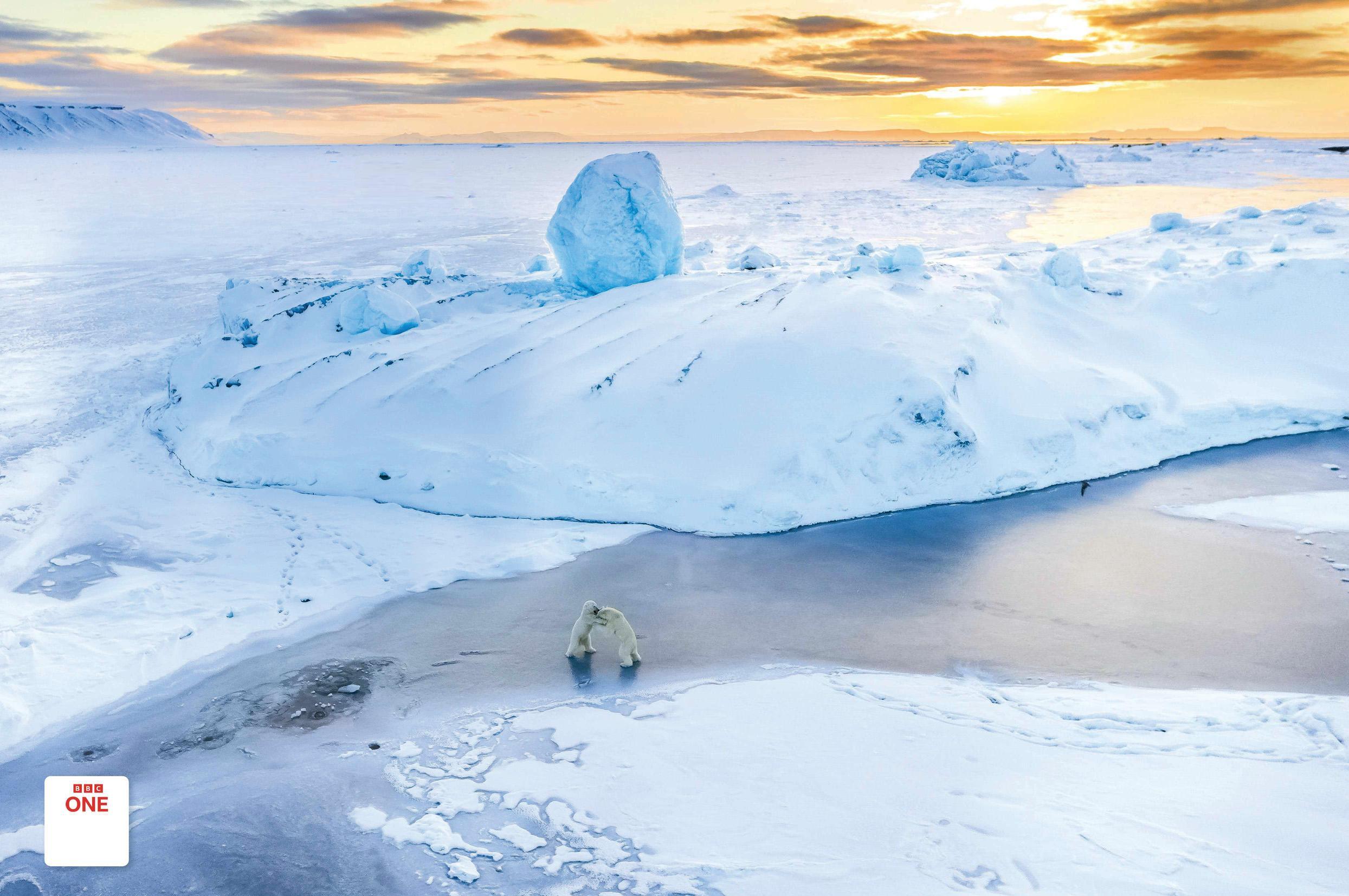
IT TOOK OVER FOUR YEARS TO make Frozen Planet II. Executive producer Mark Brownlow shares his highlights of filming on all seven continents and across 18 countries to create a series that tells an urgent story about the effects of climate change on our world.
Frozen Planet (2011) looked at the passing of the seasons at the two poles. How does Frozen Planet II build on what came before?
I was a huge fan of the original series, but a decade has passed since it aired and we now have a far greater understanding of our frozen habitats. A decade ago we were still debating whether climate change was caused by humans or not!
This series tells the bigger story of all of our frozen worlds – which, incredibly, cover one-fifth of our planet – at a time when they’re changing faster than ever before. So, we go to the Arctic and Antarctic, but we also climb the world’s highest peaks, dive into icy lakes and enter snowbound deserts.
We celebrate the wondrous life in these fragile ice worlds, but also land the message that they are changing rapidly on our watch, with potentially profound consequences for all of humanity. We focus on a singular narrative around climate change. It’s the story of our time.
What cast of animal stars can we look forward to?
A greater diversity of locations and habitats means a very broad palate of characters. We still feature the classic ice species, such as killer whales, narwhals and polar bears, but alongside them we also include snow monkeys, pandas, Siberian tigers, Pallas’s cats and Amur leopards.
Esta historia es de la edición October 2022 de BBC Wildlife.
Comience su prueba gratuita de Magzter GOLD de 7 días para acceder a miles de historias premium seleccionadas y a más de 9,000 revistas y periódicos.
Ya eres suscriptor ? Conectar
Esta historia es de la edición October 2022 de BBC Wildlife.
Comience su prueba gratuita de Magzter GOLD de 7 días para acceder a miles de historias premium seleccionadas y a más de 9,000 revistas y periódicos.
Ya eres suscriptor? Conectar

SNAP-CHAT
Justin Gilligan on giant spider crabs and holding hands with an octopus

STEPPE CHANGE
Herds of saiga have returned to Kazakhstan, but there's a fine balance to tread

TREES FOR LIFE
Community is at the heart of conservation in the tropical forests of southern Belize

WHEN DOVES CRY
Turtle doves are now the UK's fastest declining bird species, but the RSPB is on a mission to save them

SURVIVAL OF THE CUTEST
We can't help being drawn to cute creatures, but our aesthetic preferences both help and hinder conservation

LIGHT ON THE NORTH
Spectacular images of Arctic foxes, reindeer and musk oxen reveal the wild beauty and diversity of Scandinavia

ROLLING IN THE DEEP
The super-sized crustacean that lives in the deepest, darkest ocean

LET'S GET TOGETHER
Clay licks deep in the Amazon explode in a riot of colour, with macaws the stars of the show

FEMALE OF THE SPECIES
To sponge or not to sponge? That is the question for the bottlenose dolphins (Tursiops aduncus) living in Shark Bay, Western Australia.

7 nature encounters for the month ahead
WITH NATURALIST AND AUTHOR BEN HOARE